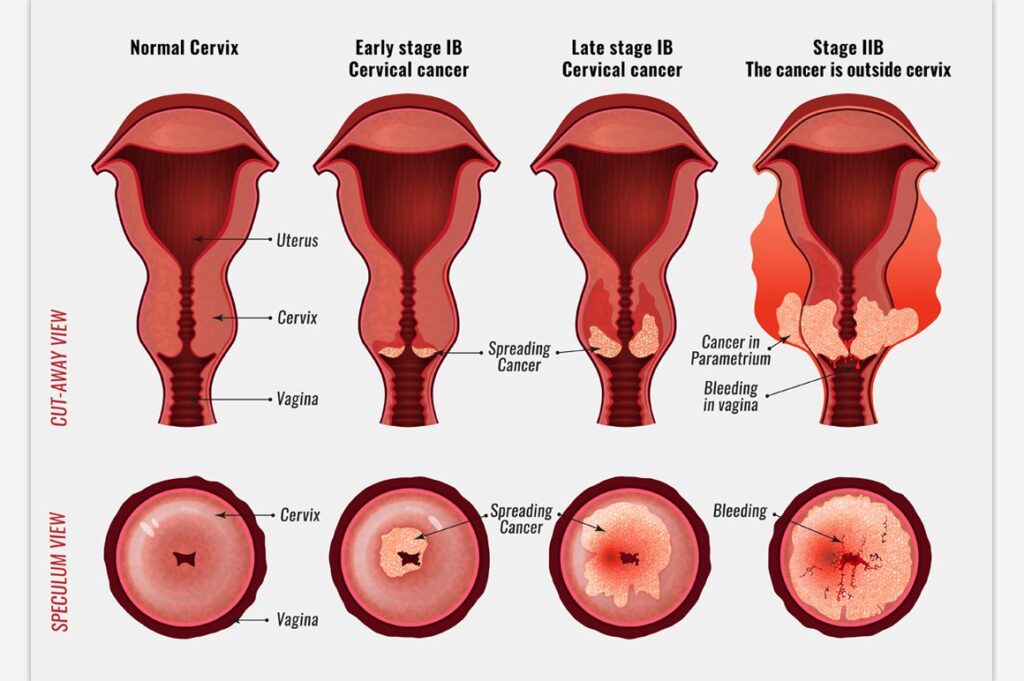
Cervical cancer is simply the cancer of the the cervix, the lower part of the uterus (womb) that connects to the vagina. Cervix is the entrance to the uterus from the vagina. It (cervix) is sometimes called the neck of the womb.
According to the World Health Organisation (WHO), cervical cancer is the fourth most common cancer in women. In 2018, an estimated 570 000 women were diagnosed with cervical cancer worldwide and about 311 000 women died from the disease.
Again, according to WHO, almost all cervical cancer cases (99%) are linked to infection with high-risk human papillomaviruses (HPV). HPV is an extremely common virus transmitted through sexual contact. There are different types of HPV known. A few of the known HPV are linked to cervical cancer. These few HPV linked to cervical cancer are considered high-risk types. Also, genital warts are caused by various strains of HPV. However, these types that cause genital warts are usually not related to cervical cancer.
In Logic, if A = B, and B = C, then, it can be concluded that A = C. If unprotected sex brings HPV, and HPV brings cervical cancer, then, we can also conclude that unprotected sex can bring cervical cancer. It has also been established that the most important risk factor for penile cancer among men is infection with high-risk HPV.
According to a doctor in the Oncology department, Lagos University Teaching Hospital (LUTH), cervical cancer is now found among young ladies especially the sexually active ones. According to the doctor, this occurrence is a new trend as cervical cancer used to be found mainly among the elderly women in the past.
Most medical problems have solutions if they are detected early enough. Same with cervical cancer. So, doctors have advised that women should go for cervical screening every 3 years. The screening usually takes a few minutes. With this screening, you would be saved from cervical cancer.
Many men have inadvertently sent their innocent wives to an early grave through various sexually transmitted diseases they passed on to their wives, and vice versa.
Go for cervical screening! If you’re faithful to your husband and your husband is faithful to you, you still need to go for cervical cancer. This is because there are few cases of cervical cancer that are not linked to HPV. So, go for cervical cancer and stay safe.
Photo Credit: creativemarket.com
































One thought on “CERVICAL CANCER AND SEX”